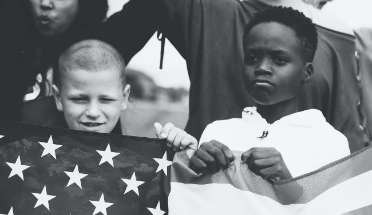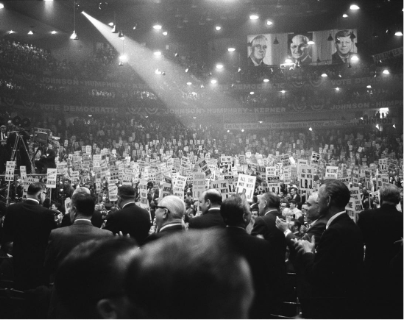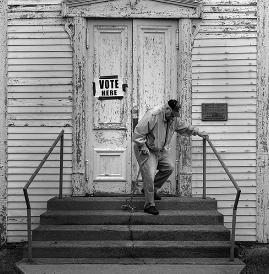Boys State Wants You!
By Anthony Barkett
Have you watched the the Boys State documentary on Apple+? It follows a few thousand generation Z high school junior boys in Texas who come together for a weekend to build a representative STATE government from the ground up (there’s also a Girls State, and we anxiously await the announcement of a sequel documentary). They come together from different political backgrounds and navigate the challenges of organizing their own political parties, consensus, and campaigning for the highest office at Boys State – Governor. Essentially, it is set up to be a microcosm of real-world politics. Coincidentally in 2011, I was my high school’s representative for Boys State in California.
Most people have either said “That’s cool” or called me a “Nerd!” Both feel equally correct.
Boys State was founded in 1935 and considered to be among some of the most respected and selective educational programs of government instruction for high school students. I had never heard of it, but my father had applied when he was my age (and was not accepted, sorry dad). The program is sponsored by the American Legion, a non-profit organization of U.S. war veterans and allows students to be elected to various offices and engage in activities that include legislative sessions, court proceedings, law-enforcement presentations, assemblies, bands, choruses, and recreational programs.
From the beginning, it felt like a foreign world to me. I was interviewed by American Legion members, who were dressed in full military uniform. My only connection to military experience was that both of my grandfathers served in the Army and Navy when they were my age, but I was interested in politics and thought this would be a great opportunity to understand state politics on a deeper level.
Before going to Boys State, the American Legion held an event for the San Diego representatives to meet everyone. I sat across from this one kid whose nickname was Kirby (for anyone under the age of 35 you remember Kirby was a round pink character from the video game Super Smash Brothers on Nintendo 64). And I will be completely honest, he looked exactly like Kirby. Almost immediately he told me about his background – he was one of 8 kids and never knew his father, and his mother suffered from drug addiction. He said he planned on running for one of the top positions and he hoped I would support him. My initial reaction was wow, why was I chosen to be a representative, my story is not nearly as moving as Kirby’s and wait a second, you are already running for a position!?
Nothing really prepared me for when I arrived at San Jose State College for the weekend. Over 1,000 high school boys descended onto the campus. From the moment we all stepped on school grounds it was a lot to take in… a grand display of all different types of guys (nerds, jocks, the doers, fine arts, the brains, normal fillers and sprinkled with some loner kids). It quickly became apparent that you were either a spectator (me) or you were campaigning for a position. People quickly formed their own groups and focused on the elected positions.
Almost immediately, and not to my surprise, Kirby had a team around him. He was walking around the quad with people trailing getting signatures to be a candidate for Governor. In talking with some of the representatives there, it is very clear how most people get their political views: THEIR PARENTS. However, what surprised me was the camaraderie people felt right away. The guys went all in. There were chants, songs, ferocious clapping and fist pumping the entire weekend.
During speeches one person could say something, the crowd would react favorably and all the sudden everyone was chanting – their views and opinions sometimes flipped immediately by one enthusiastic Hype Man.
One chant could spread like wildfire and then a leader is born! Kirby, Kirby, KIRBY!
There were many eye-opening experiences from the weekend at Boys State. You would talk to some people and hear their stories, but then you’d see the way they would schmooze the crowd and it was a completely different person than the one you’d met. Those people were molding themselves on how the crowd reacted to what they said. They used the reaction to play to their advantage. But in the end, the story of Kirby and his authenticity, his upbringing and family struggles, resonated with everyone and he ended up winning. It was rewarding to see that someone who was authentic and connected to the people beat out his opponent who just relied on chants and fist pumps. In the documentary, a similar ‘Kirby’-like, authentic boy, Steven, from an unprivileged background launches his own campaign for governor. I won’t spoil the results here, but needless to say, it’s worth a watch.
After viewing the documentary, I was reminded of the unfortunate parallels between the gamification of politics in the Boys State program and the game-like reality of our current political climate. Politicians these days succeed based on how they can influence people, for better or worse, how they manipulate the emotions of voters and how they can amp up a crowd – whether that is through something substantive or not. Many people, myself included, have become cynical of politics and politicians – a world I used to feel enamored by. This documentary highlights how the well-intentioned ‘system’ of Boys State devolves into mirroring our current division, which ultimately sends the wrong message to interested young individuals. On the flip side, it does encourage you to see the passion these young soon-to-be voters have in our nation and the goals they all share.
In the end, I’d venture to say my experience wasn’t a waste – here I am, co-founding a political education platform. Political Playlist is our attempt to address the passion these young students feel and make sure it is paired with information and facts. Boys State was my first foray into state politics and perhaps the first time I took note of how broken it could become.
Our goal now is to heal that breakage and count on young people, like those in the documentary, to pave a new way forward.


